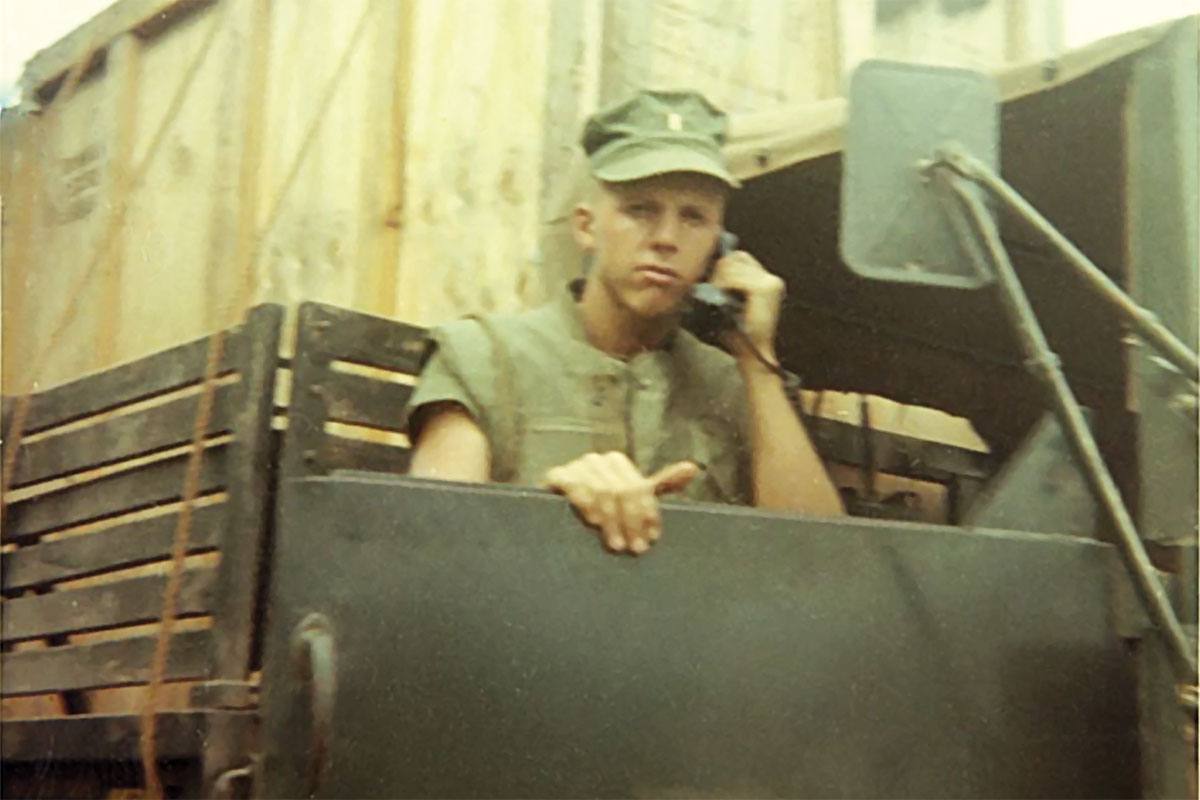Turning Points
The Fruits of My Indecision

Photo Credit: Courtesy Theodore M. Hammett
By Theodore M. Hammett, GSAS MA’75, PhD’76
Have an “aha“ moment you’d like to share with Turning Points?
Please send a query letter to gardner@brandeis.edu.
It was May 1966, the end of my junior year at Harvard. I was scheduled to report soon for my second summer camp in a U.S. Marine Corps officer candidate program.
But I had resolved to withdraw from the program; I believed the war in Vietnam was wrong. Now I needed to tell my father that. He had been a Marine infantry platoon commander in the South Pacific during World War II and seemed to want me to follow in his every footstep.
“You’re spitting on everything I believe in,” he shouted, in the course of a long argument over the phone. He summoned me home the next morning to explain why he shouldn’t take me out of school, which would likely have meant my being drafted immediately.
I asked my history tutor if I could get a scholarship to stay at Harvard without my father’s financial support. He said it might be possible. I was young and confused, though, and I gave in to doubt and fear. I didn’t want to risk a complete break with my father. I certainly didn’t have the commitment of the bravest opponents of the Vietnam War. Maybe I was driven by a dual cowardice, both afraid to fight in the war and afraid to stand up to my father. Maybe I avoided forming definite opinions because, if I did, I’d have to act on them.
At any rate, I capitulated. In 1968, I went to Vietnam as a Marine lieutenant. Luckily for me, I spent my 13 months there in relative safety, working as a supply officer at a field hospital near the DMZ. I did a disaffectedly poor job and stayed marginally sane by drinking a lot; listening to music by Bob Dylan, the Beatles, and others; and looking forward to returning home to my girlfriend.
I still hated the war, and now I hated the Vietnamese people, too. Although I never fully broke with my father, I never really reconciled with him.
When I got back to the U.S., I began a PhD program in American history at Brandeis. The university was a center of antiwar activism and radical politics. The fall I enrolled, two Brandeis students were part of a group that robbed a Boston bank to get money for revolutionary action, a heist that led to the shooting death of a police officer.
I nominally supported the antiwar movement. I attended a few meetings of Vietnam Veterans Against the War but didn’t join any of their demonstrations. I didn’t even tell my fellow Brandeis students I was a Marine veteran who opposed the war.
But my personal history deeply influenced which historical topics I studied and how I interpreted them. I repeatedly studied groups who had historiographic reputations as radical but who, I concluded, eschewed revolutionary action in favor of a middle ground that preserved order and deference to authority.
After I got my doctorate, I embarked on a nearly 40-year career at Abt Associates, a Cambridge, Massachusetts-based policy research and consulting firm, working in the areas of criminal justice and public health, with a focus on HIV/AIDS programs.
As time went by, I felt more and more guilty about my country’s devastation of Vietnam and my own mistreatment of its people. In 1997, quite by chance, I got the opportunity to go back to Vietnam as a tourist. Soon, I began working with the Vietnamese government and civil society organizations on improving HIV/AIDS prevention and treatment programs.
I lived in Hanoi for five years. I gained many incredible Vietnamese colleagues and friends. I came to love the country for its scenic beauty; its vibrant culture; its wonderful food; and the courage, energy, resilience, and communal spirit of its people.
This was my “second tour” in Vietnam, during which I came to call the country my second home.
My fumbling indecision during the bad old days? If I could do it over again, I’d refuse to serve in Vietnam, and I’d commit myself to the antiwar movement, whatever the consequences.
Ultimately, though, the course I chose led me to some of my most treasured experiences, not to mention some hard-earned intellectual and emotional growth.
Theodore M. Hammett is the author of “Entwined With Vietnam: A Reluctant Marine’s Tour and Return” (McFarland, 2022). He lives in a Vietnamese-style three-generation household in Watertown, Massachusetts. Read more of his writing.